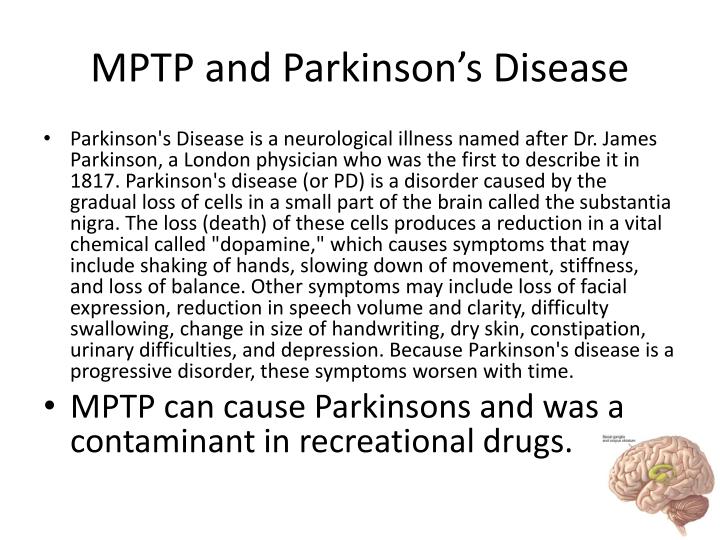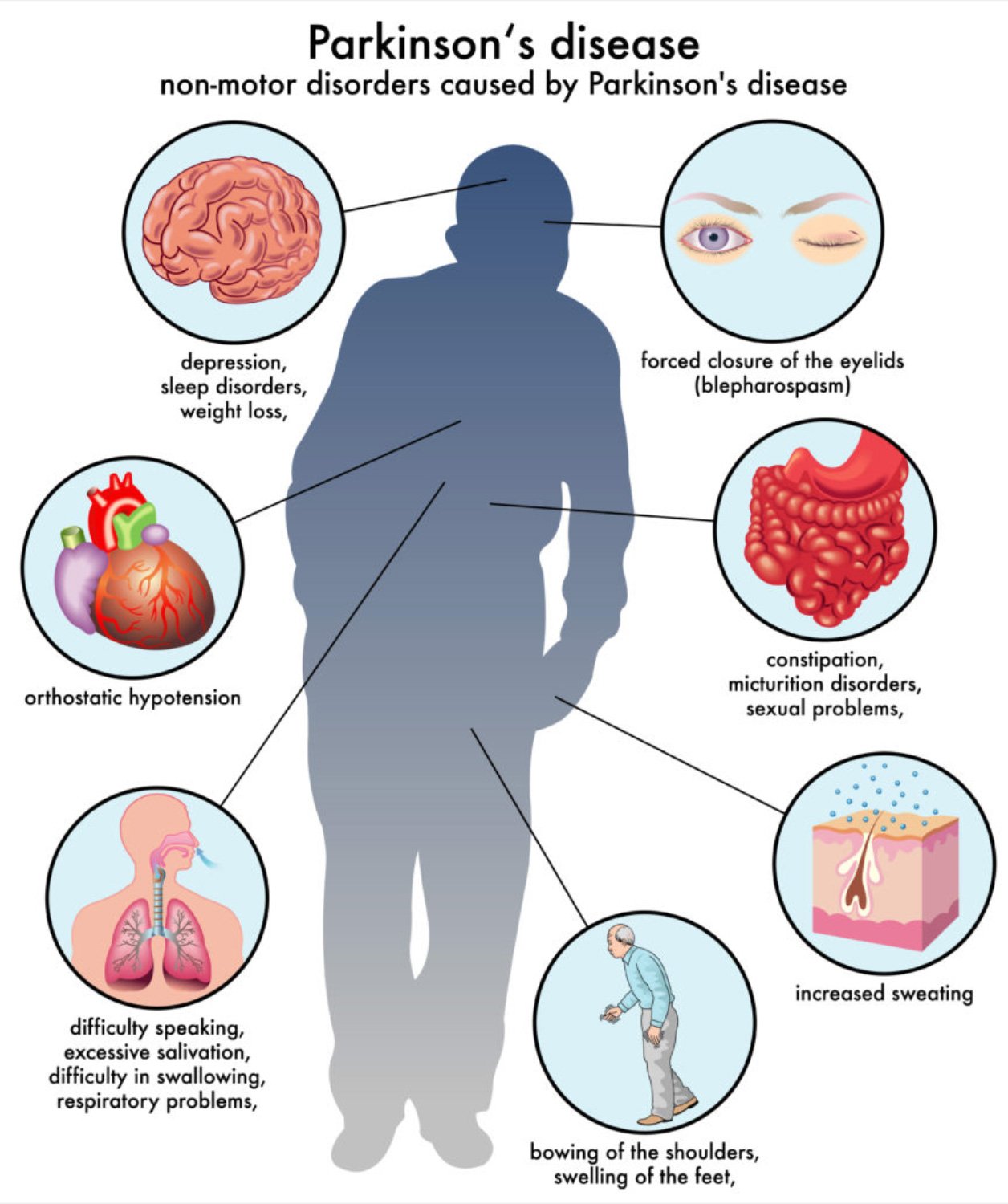A Study To Evaluate The Efficacy Of Prasinezumab In Participants With Early Parkinson’s Disease
Sorry, in progress, not accepting new patients
This multicenter, randomized, double-blind, placebo-controlled, Phase 2 study will evaluate the efficacy of intravenous prasinezumab versus placebo over 52 weeks in participants with early Parkinson’s Disease who are untreated or treated with monoamine oxidase B inhibitors since baseline. The study will consist of three parts: a 52-week, double-blind, placebo-controlled treatment period after which eligible participants will continue into an all-participants-on-treatment blinded dose extension for an additional 52 weeks . Participants who complete Part 2 will be offered participation in Part 3 open-label extension for an additional 260 weeks.
at UCSF
Advancing Understanding Of Transportation Options
Sorry, in progress, not accepting new patients
This Stage II randomized, controlled, longitudinal trial seeks to assess the acceptability, feasibility, and effects of a driving decision aid use among geriatric patients and providers. This multi-site trial will test the driving decision aid in improving decision making and quality and determine its effects on specific subpopulations of older drivers . The overarching hypotheses are that the DDA will help older adults make high-quality decisions, which will mitigate the negative psychosocial impacts of driving reduction, and that optimal DDA use will target certain populations and settings.
at UCSD
Sorry, in progress, not accepting new patients
This study will investigate cortical stimulation to treat mood and behavioral symptoms in Parkinson’s disease patients.
at UCSF
Study To Assess Adverse Events And Change In Disease Activity Of 24
Sorry, accepting new patients by invitation only
Parkinson’s disease is a neurological condition, which affects the brain. PD gets worse over time, but how quickly it progresses varies a lot from person to person. Some symptoms of PD are tremors, stiffness, and slowness of movement. This study will assess how safe and effective ABBV-951 is in adult participants with PD. Adverse events and change in disease activity is evaluated. ABBV-951 is an investigational drug containing levodopa/carbidopa given as an infusion under the skin for the treatment of Parkinson’s Disease. Adult participants with advanced PD and who have completed M15-736 or M20-339 study will be enrolled. Approximately 130 participants will be enrolled in the study in approximately 60 sites in the United States and Australia. Participants will receive continuous subcutaneous infusion of ABBV-951 for 96 weeks. There may be higher treatment burden for participants in this trial compared to their standard of care. Participants will attend regular visits during the course of the study at a hospital or clinic. The effect of the treatment will be checked by medical and remote telephone assessments, blood tests, checking for side effects, and completing questionnaires.
at UCLAUCSD
Don’t Miss: What Does Parkinson’s Disease
North American Prodromal Synucleinopathy Consortium
Sorry, accepting new patients by invitation only
This study will enroll participants with idiopathic rapid eye movement sleep behavior disorder , for the purpose of preparing for a clinical trial of neuroprotective treatments against synucleinopathies.
at UCLA
Sorry, accepting new patients by invitation only
An extension study for participants who have completed a prior VY-AADC01 clinical study
at UCSF
Study To Identify Clinical Imaging And Biologic Markers Of Parkinson Disease Progression

Sorry, in progress, not accepting new patients
This is a observational, multi-center study to assess progression of clinical features, imaging and biologic biomarkers in Parkinson disease patients compared to healthy controls and in PD patient subtypes. The primary objective of this study is to identify clinical, imaging and biologic markers of PD progression for use in clinical trials of disease-modifying therapies.
at UCSDUCSF
You May Like: How Do They Test You For Parkinson’s Disease
News And Commentary From The World Of Neurology And Neuroscience
Your brain on psilocybin: an MRI study looked at brain connectivity 20 minutes, 40 minutes, and 70 minutes after people received either psilocybin or placebo.
New research about the role of microglia is shifting the brain-body paradigm and may make inflammation an important target for Alzheimer’s and other neurological diseases, an essayist argued.
A common probiotic, Bacillus subtilis, inhibited alpha-synuclein aggregation and cleared pre-formed aggregates in a roundworm synucleinopathy model, which may have implications for Parkinson’s disease.
Roche announced plans to aggressively price its oral spinal muscular atrophy drug risdiplam to challenge two of the world’s most expensive medicines — nusinersen and the gene therapy onasemnogene abeparvovec — if the drug is approved in May.
Is norepinephrine signaling a missing piece of the Alzheimer’s disease puzzle?
An investigational drug that may lead to a vaccine for Parkinson’s disease by triggering alpha-synuclein antibodies is starting a phase II trial, Affiris announced.
RimabotulinumtoxinB injections significantly reduced saliva production and drooling in older adults with Parkinson’s disease and other disorders.
Are patients in persistent vegetative states — who are conscious, but sealed off from the rest of the world — in a limbo of torture?
Nerve ultrasound coupled with standard nerve conduction studies improved detection of treatment-responsive chronic inflammatory neuropathies.
Effects Of Psilocybin Therapy On Sleep And Thermoregulation
We are looking at the effects of psilocybin therapy on two aspects of physiological function: 1) sleep, and 2) thermoregulation. These functions can be disrupted in multiple disorders that involve mood symptoms . For example, people with depressed mood can have impaired thermoregulatory cooling capacity, meaning that they are not as able to sweat in order to cool their bodies down. People with chronic pain can experience disruptions in their sleep after pain-induced awakenings. Participants in our clinical psilocybin trials will have the option of using the Oura Ring, a wearable technology that measures heart rate, skin temperature, respiratory rate, physical activity, and sleep throughout the day and night. Data gathered with the device can help us understand whether psilocybin therapy impacts sleep and/or thermoregulatory capacity. By quantifying changes in key metrics over the course of multiple trials, we hope to gain insights about the physiological dysregulations that underlie mood symptoms as well as the mechanisms of psilocybin’s effects on those symptoms. This study is currently active.
Also Check: Do Both Hands Shake With Parkinson’s
Remote Optimization Adjustment And Measurement For Deep Brain Stimulation
Sorry, not currently recruiting here
The purpose of the ROAM-DBS study is to compare the time needed to achieve a 1 point improvement Patient’s Global Impression of change relative to the subject’s status at the end of the ADROIT initial programming visit in subjects who receive programming updates via in-clinic sessions and subjects who additionally have the option of receiving programming updates via Virtual Clinic sessions. The study intends to demonstrate shorter times to achieve benefit in the Virtual Clinic cohort.
at UC Davis
Study In Parkinson Disease Of Exercise
open to eligible people ages 40-80
This study is a Phase 3 multi-site, randomized, evaluator-masked, study of endurance treadmill exercise on changes in the Movement Disorder Society-Unified Parkinson Disease Rating Scale Part III score at 12 months among persons with early stage Parkinson disease. 370 participants will be randomly assigned to 2 groups: 1)60-65% HRmax or 2)80-85% HRmax 4 times per week. The primary objective is to test whether the progression of the signs of Parkinson’s disease is attenuated at 12 months in among persons who have not initiated medication for Parkinson Disease when they perform high-intensity endurance treadmill exercise.
at UCSF
Read Also: How Do Neurologists Diagnose Parkinson’s Disease
Microdosing And Cluster Headaches
Microdosing has shown a lot of promise as a treatment for cluster headaches, which is often described as an unbearable headache that feels more intense than, for example, childbirth or kidney stones. Dr. James Fadiman quotes a patient who managed to get rid of her ice pick headache through microdosing LSD. She was able to achieve the same result several times over the next few months. Since then, her cluster headaches have stayed away.
Clusterbusters, a platform for cluster headache patients, takes the lead in research into psychedelics as a potential treatment. While all other treatments have been unsuccessful, many patients have found significant relief from their cluster headaches through LSD, 1cP-LSD, magic truffles, or magic mushrooms. The doses shown to be most effective for providing relief from cluster headaches are generally higher than a microdose, yet there is sufficient evidence that microdoses can equally be effective.
Luckily, scientific research into treating cluster headaches with microdosing is starting in the US and Canada. This is expected to definitively demonstrate the effectiveness of psychedelics as a remedy for this terrible disorder.
Find Out More About This Capital Raise
Welcome to the Market Herald Deal Room for this Friday, where we review the week in capital raising.
Emyria shares soared more than 60 per cent on news Andrew Twiggy Forrests private investment group Tattarang had invested $5 million.
It could be viewed as a controversial move for Tattarang, in that Emyria is not only trialling cannabinoid treatments for mental health conditions, epilepsy and Parkinsons disease, but also MDMA and magic mushrooms.
Emyrias Managing Director Dr Michael Winlo said thered been a resurgence in research into the effectiveness of these drugs.
Conservative medicines cautious about these treatments, in the same way theyre cautious about medicinal cannabis, he said.
But the reality is, for many patients, standard treatments arent effective, have unwanted side effects or are just not available yet.
Tattarang sees the size of the problem. This is a global, massive issue that were trying to address and obviously theres clear commercial value to that.
Emryias market cap has increased since the announcement to $135 million, with shares opening at 50 cents today. Tattarang has already doubled its investment after securing its shares at 25 cents.
Pharmaxis this week launched a $2 million share purchase plan to help fund phase two trials of its treatment for liver and bone cancer, as well as trials of a topical drug with the potential to improve scarring.
It was a nice entrance onto the ASX, he said.
More From The Market Herald
Read Also: What Is The Outcome Of Parkinson’s Disease
Where To Find Lions Mane
- In the Woods: This mushroom typically grows from late summer throughout fall on living hardwood trees. It often grows high up on trees, so keep an eye to the sky when hunting for it!
- At The Market: Due to its growing popularity, commercially grown Lions Mane can often be found at local farmers markets. Ive even heard reports of it being sold at Whole Foods.
- Grow Your Own: Of course, you can take matters into your own hands and easily grow some Lions Mane at home.
I picked up a few grow kits from Myc Tyson which produced over a pound of Lions Mane for my first flush. Hazzah!
Trial Of Parkinson’s And Zoledronic Acid

open to eligible people ages 60 years and up
This home-based study is a randomized placebo-controlled trial of a single infusion of zoledronic acid-5 mg for the prevention of fractures in men and women aged 60 years and older with Parkinson’s disease and parkinsonism with at least 2 years of follow-up. A total of 3500 participants will be enrolled and randomized in the United States. Participants, follow-up outcome assessors, and study investigators will be blinded to assigned study treatment. This trial is funded by the National Institute of Aging.
at UC DavisUC IrvineUCLAUCSF
Read Also: How Does Parkinson’s Kill
Psychedelics And Parkinsons Disease: Improving Patient Quality Of Life
Emily Jarvie
In recent years, research has shown that psychedelic drugs offer new and exciting potential treatments for various physical and mental health conditions. One promising area is the use of psychedelic-assisted therapy to treat Parkinsons Disease: a progressive neurodegenerative disorder that occurs when the nerve cells in the brain that control movement stop working or die. Truffle Report has put together a brief review of prospective treatments and clinical trials involving psychedelics and Parkinsons Disease.
More than 10 million people worldwide live with Parkinsons. While both men and women can be diagnosed with the disease, this condition affects 50 percent more men than women.
Common symptoms of the disease include tremors, muscle stiffness or muscle rigidity, slowness of movement, dry mouth, and difficulty walking or talking. It can also lead to Parkinsons dementia, cognitive impairment, sleep problems, and mental health issues such as depression and anxiety.
Sadly, there is no cure for the condition. The range of disease symptoms a person with Parkinsons can experience makes standardizing medical treatment protocols challenging. Current treatments include medications and drug therapy, and supportive therapies such as physical therapy or speech therapy, surgery, and lifestyle modifications.
Pharma Company Also Plans To Investigate Psychedelic Therapies For Multiple Sclerosis
In 2006, Johns Hopkins researchers published a groundbreaking study on the effects of a single dose of psilocybin, a naturally occurring psychedelic compound found in more than 200 species of mushrooms. The team had to set up unusually rigorous scientific conditions and measures amid highly restrictive regulatory policies, which were partially due to unfavorable media coverage from the recreational use of shrooms in the 1960s and 70s that had resulted in misperceptions of risk.
The landmark study provided a scientific framework to better understand how hallucinogenic drugs target the brains serotonin receptors, and the researchers announced future plans to investigate how psilocybin might be used to treat conditions like cancer-related anxiety and depression, and other mental health conditions. Since then, more than 60 peer-reviewed articles in scientific journals further validated the safety and enduring positive effects of a unique class of pharmacological compounds known as psychedelics.
The US Food and Drug Administration has since granted breakthrough therapy designation for psilocybin to determine its viability for treating major depressive disorder, opening enrollment to patients for clinical studies in 2019.
in Neuropsychiatric Disorders Laboratory is studying why people with mental illnesses have trouble with social connection.
For Weisblum, working in this industry has been particularly personal.
Recommended Reading: Do Dogs Get Parkinson’s Disease
Washington Lawmakers Considering A Bill To Legalize Psilocybin For Medical Treatment
OLYMPIA, Wash Known for decades as magic mushrooms, Washington lawmakers will consider legalizing the use of psilocybin to treat various illnesses like PTSD and depression.
Senate Bill 5660 mirrors a bill passed in Oregon in 2020 with some modifications.
The bill enables people 21 and older to be treated at licensed care centers under the supervision of licensed facilitators.
Despite any state legalization, psilocybin is still illegal under federal law.
An addiction psychologist and researcher from the University of Washington spoke in support of the bill in a committee hearing Wednesday. While his research is in the field of psychedelics and addiction, he said he was speaking before the committee as a private citizen.
The evidence currently suggests that psilocybin, when given in a controlled environment, under the care of a provider, may significantly reduce symptoms of depression, anxiety, trauma and a range of substance abuse disorders, Nathan Sackett told the committee.
He said this bill could provide a pathway for certain patients to find a treatment that is currently only available to patients who are in clinical trials or are breaking the law to get it.
I have seen the positive effects firsthand, he said.
Sackett did support the bill with a caveat, however. He said researchers have not done studies beyond highly-controlled environments. He said hed like to see more studies moving forward, while also providing this treatment legally.
Can Herbs And Mushrooms Help Parkinsons
Once Parkinsons disease develops, it cannot be remediednot by mainstream medicine, nor by alternative medicine.
Luckily, the condition is not fatal. However, the more it develops, the more complicated and serious symptoms can get.
Thats why early detection, risk reduction, and treatment are important.
Together, both medical treatments and natural remedieslike herbs and mushroomscan provide supplemental support as well as risk reduction of Parkinsons symptoms getting worse, studies show.
According to science, here are some of the best natural remedy candidates for Parkinsons.
Don’t Miss: What Are The Diagnostic Tests For Parkinson’s Disease
Interested In Trying Lions Mane For Parkinsons Disease
If youre interested in trying lions mane mushrooms for Parkinsons disease, we suggest doing so with Forij Superfood Granola.
Why? Well, for one, its tasty granola youll be ecstatic to munch on every morning. And more importantly, this granola is gluten-free, vegan, and extremely healthy. It contains a hyperconcentrated extract of lions mane, as well as cordyceps and chaga extracts.Choose from one of our three delicious flavors: sunflower seed cacao, cinnamon, or vanilla almond. Alternatively, go with a bundle of all three flavors if you cant decide or simply want a variety of flavors to start your mornings with.
Deep Brain Stimulation For The Treatment Of Parkinson’s Disease
Sorry, in progress, not accepting new patients
The purpose of this study is to evaluate the safety and effectiveness of Boston Scientific’s Vercise Deep Brain Stimulation system in the treatment of patients with with advanced, levodopa-responsive bilateral Parkinson’s disease which is not adequately controlled with medication.
at UCSF
Read Also: What Are The Beginning Signs Of Parkinson’s
Medical Applications Of Microdosing
In addition to many wellbeing benefits of microdosing, effective medical applications have also been reported. Depression, ADHD, and cluster headaches are perhaps the most significant of them. In Dr. James Fadimans research, positive results were reported in the following complaints/disorders:
- Depression
- Traumatic Brain Injury
- Hormonal imbalance
NOTE:
Randomized Clinical Trial Of Psilocybin For Depression

Recruitment Closed
The purpose of this study is to evaluate the potential efficacy of a single 25 mg oral dose of psilocybin for MDD compared to the active placebo in otherwise medically healthy participants, assessed as the difference between groups in changes in depressive symptoms from Baseline to Day 8 post-dose.
Eighty participants, ages 21 to 65, who meet Diagnostic and Statistical Manual of Mental Disorders criteria for major depressive disorder will be stratified by study site and randomized with a 1-to-1 allocation under double-blind conditions to receive a single 25 mg oral dose of psilocybin or a single 100 mg oral dose of niacin. Niacin will serve as an active placebo.
Don’t Miss: Is Parkinson’s A Chronic Disease
